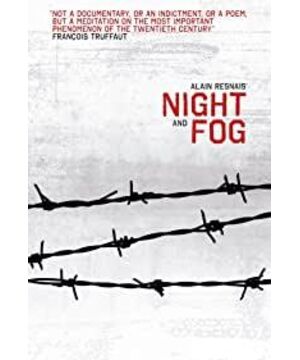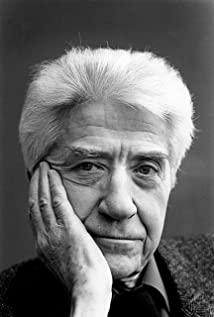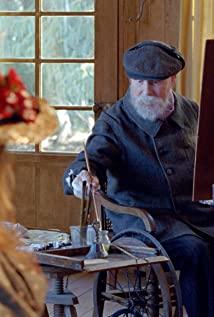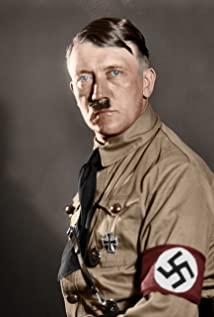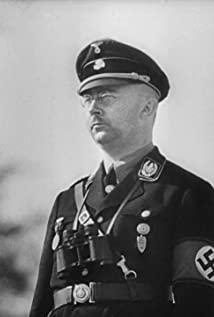"Even a quiet and peaceful view, even a pasture during harvest, even a path where vehicles, farmers, and couples come and go, can lead to the camps. Nyungom, Belsen... these would have been some Bland place names on maps and compasses, the blood has dried up, the mouthpiece has been silent. The camera is the only visitor there." In 1956, director Alan Resnais used the camera to lead the audience back to Auschwitz. The former site of the Nazi concentration camp was already a peaceful and beautiful wild scene. However, the time goes back to 1933, when the Nazi Party took power, the whole city was shrouded in haze - a large number of Jews were taken into concentration camps and began to suffer inhuman torture and humiliation. In 1945, Shilem visited and pursued the "destroy" policy. The concentration camp refugees entered a more tragic situation, and piles of corpses were pushed into large pits by bulldozers for burial.... Writing poetry after Auschwitz, Ardono said, was cruel. After great suffering, frivolous or poignantly romanticized verses add fuel to the fire, uncovering unhealed scars. The restrained black-and-white images, and the narration full of distance, guide the audience while grieving the inhuman horrors encountered in the concentration camps, and at the same time have to think about a question, who is responsible for this? "I have no responsibility," said the prisoner. "I have no responsibility," the officer said. "I have no responsibility," they all said. Whose responsibility is that? I can't find the answer for a while. When we reflect on World War II, what is the purpose of resisting the rekindling of fascism? It is to prevent the resurrection of totalitarianism, to prevent the world from falling into disaster again because of some people, to prevent people in it from confusing the true and false, unable to distinguish between right and wrong and good and evil, and truly understand the meaning of human beings - the most beautiful human beings. Quality is wisdom and a loving heart. Just imagine, the Nazi officers at the time were under a totalitarian society and had to obey orders in every move. They are weapons, bullets, animals that kill without blinking an eye. They may have thought about why they want to kill these unarmed civilians, they have no monstrous hatred, they are just a group of weak people who are oppressed and do not do too much resistance and only work for them safely, but after a few seconds , they gave up their laborious thinking and decided to just follow the orders from above - kill, destroy. Thus, the massacre began, the devastation and persecution intensified, and the feelings of the officers became more and more indifferent, until it did not make waves or even enjoyed the process. Bullying the weak and taking pleasure out of it seems to have always been the case. But it's always been like this, right? We can make excuses for the people who came before: they are not educated enough, they have not received a good education, so they are not wise enough to love people well. So there is a grudging explanation for their violent, beastly behavior. So how do you defend the Nazis? You can't say that they haven't been to school, haven't read characters, and don't know how to write the word "person", right? ! That's the twentieth century! In an era when productivity and education levels were higher than before, their behavior remained the same or even worse than before. That is because they voluntarily cover their eyes, refuse to distinguish right from wrong, and are willing to be driven by others without thinking. I personally think that the value of documentaries is not to tell stories, but to reflect on later generations. From this perspective, it has the same meaning and responsibility as history. We can't just see the tragic experience of the Nazi concentration camps and the ruthlessness of the Nazi officers. More importantly, we must find the answers and the reasons from them, so as to avoid repeating the same mistakes. Then the previous problem A plausible answer - the responsibility lies in people's hearts. They are wise, but they don't use it well, so that they are blinded, and even the most basic lover's heart is abandoned. It is not surprising that such behavior occurs. History is yesterday's today and today's tomorrow. The only lesson history can teach is that people never learned any lessons from history. We can never guarantee that we will learn lessons from history. Just as World War II was a repetition of World War I, the future may also be a repetition of countless previous wars. In this regard, I am pessimistic. Just as Israel recently used force against a small neighboring country, and the country that has suffered for a while has forgotten its scars, so what about other countries? But only by maintaining the love of others, always loving knowledge, and making ourselves real people, can we have the confidence to move forward into the future, so that human beings will not be defeated in the harsh natural environment, but end in the man-made disaster of cannibalism.
View more about Night and Fog reviews


